When planning for a new construction home, one might wonder, when to schedule home inspection for new construction. The ideal timing for this important step is after the builder completes the project but before your final walkthrough. This allows any issues to be addressed before you take ownership. Aim for a week or two before the closing date to strike the perfect balance between completion and rectification time.
Building a new home is an exciting journey towards creating a space that mirrors your aspirations. However, a common myth is that new constructions don’t need inspections because they’re built from scratch with new materials. This couldn’t be further from the truth. Inspections are crucial to ensuring every corner of your new home meets your standards of quality and safety. They help unveil hidden issues, ensuring your dream home is not just beautiful but also structurally sound and safe.
For luxury homeowners in Massachusetts who prize exceptional craftsmanship and a stress-free building process, understanding when to schedule home inspections for new construction adds an extra layer of confidence. You’re ensuring your new luxury home not only meets your aesthetic and functional requirements but also adheres to the highest standards of construction quality.
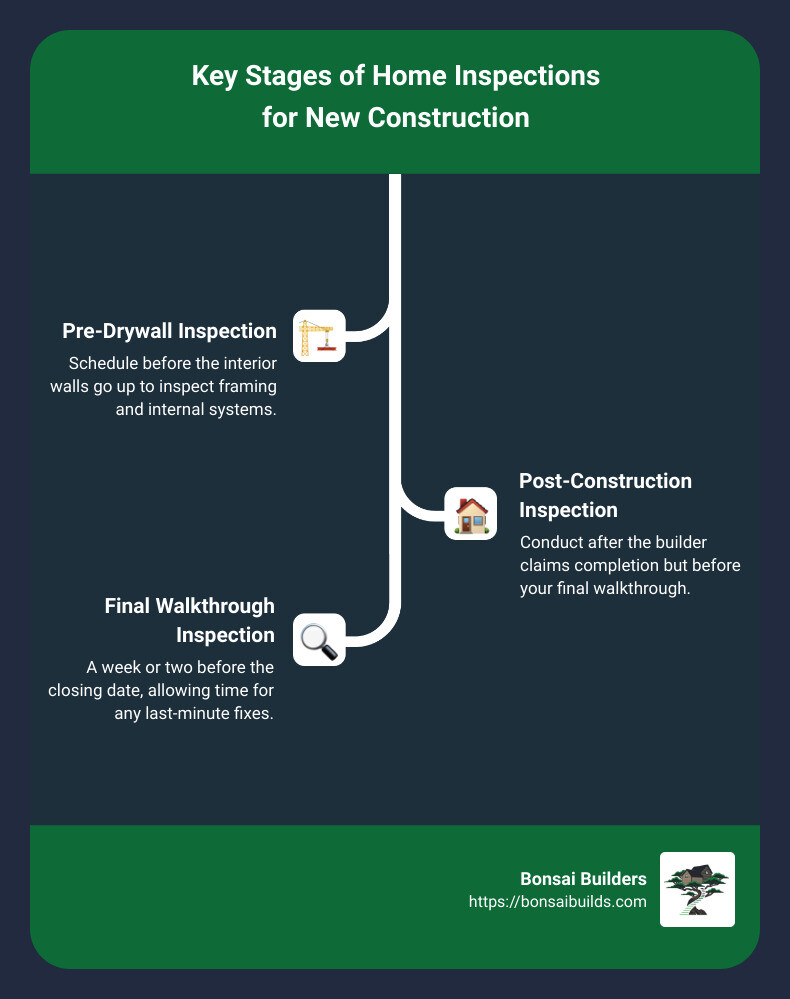
With this practical guide, we aim to debunk myths and lay out a clear path to securing peace of mind and satisfaction with your new construction home, focusing on the essential steps and timings for home inspections.
Table of Contents
When to Schedule Home Inspection for New Construction?
For new construction, it’s crucial to schedule a pre-drywall inspection after framing, plumbing, electrical, and HVAC rough-ins, typically around 60-90 days into construction. This allows for an assessment of internal structures before drywall installation. Then, a pre-closing inspection should be scheduled shortly before the final walkthrough and closing, typically within a week or two of completion, to assess finishes and overall workmanship.
Lastly, during the final walkthrough, which typically occurs right before closing, you can ensure that any agreed-upon repairs are completed. Coordinating these inspections with a reputable home inspector and communicating with the builder ensures that any issues are caught early and addressed promptly.
Buying a new home is exciting, but it’s also a huge investment. That’s why a home inspection is key, even for new constructions. Let’s break down when to schedule these inspections to ensure your new home is in top shape.
Pre-Drywall Inspection
Timing: Schedule this right after the home’s framework is up but before the drywall is installed. This is typically when the electrical wiring, plumbing, and HVAC ducts are in place but not yet covered.
- Why It’s Important: It lets the inspector see behind the walls. This is your chance to catch issues like improper framing, electrical faults, or plumbing leaks before they’re hidden by drywall. Fixing these issues now can save you time, money, and headaches later.
Post-Construction Inspection
Timing: This should be done once construction is completed but before your final walkthrough with the builder.
- Why It’s Important: Even after the builders have done their own inspection, it’s crucial to have an independent inspector review the home. They can spot problems that the construction team might have missed, ensuring everything from the foundation to the roof is up to standard.
Final Walkthrough Inspection
Timing: Aim to schedule this a week or two before the official closing date. This gives you a buffer to address any last-minute issues.
- Why It’s Important: This is your last chance to make sure all systems are functioning correctly, and the home is exactly as you expect it to be before you take ownership. It’s also an opportunity to verify that any previously identified issues during the post-construction inspection have been resolved.
Remember: Scheduling these inspections at the right time is crucial. The pre-drywall inspection ensures that the bones of your home are solid. The post-construction inspection confirms that the finished product meets your standards. And the final walkthrough ensures that your home is ready for you to move in.
Pro Tip: Keep in touch with your builder about their construction timeline to schedule inspections at the ideal times. Flexibility is key, as construction schedules can sometimes shift.
Navigating the timing of these inspections can seem daunting, but it’s a critical step in the home-buying process. By scheduling these inspections at the right times, you’re taking a proactive approach to protect your investment and ensure your new home is safe, secure, and exactly as you dreamed it would be.
Now, let’s dive into the specific types of home inspections for new construction, to give you a clearer understanding of what each inspection entails and why it’s important.
Types of Home Inspections for New Construction
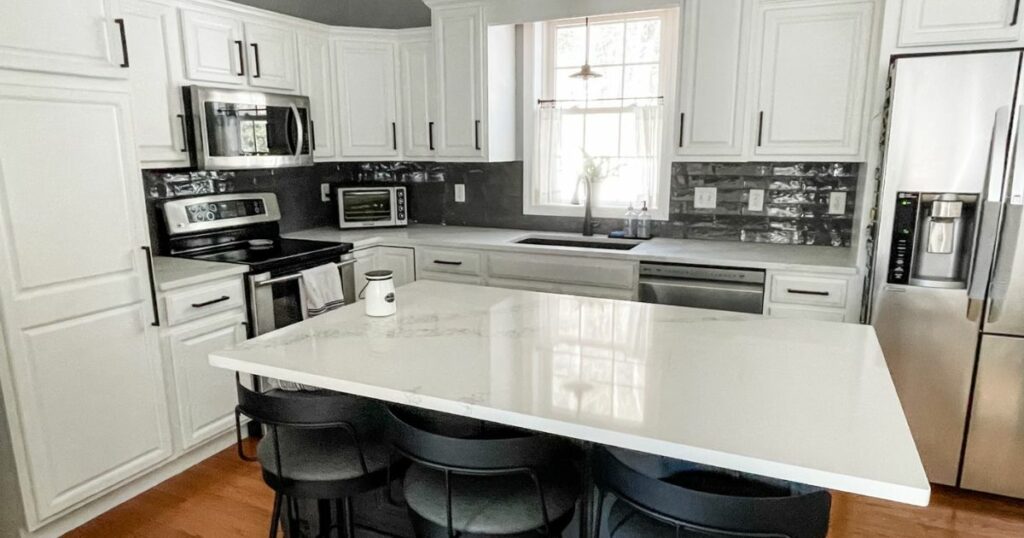
When you’re getting a new home, it’s like picking a fresh apple from a tree. You hope it’s perfect, but sometimes, even the freshest apple can have a worm inside. That’s why home inspections are your best friend. They help you spot the worms before you take a bite. Let’s talk about the three main inspections you should consider.
Pre-Drywall Inspection
Imagine your house is like a giant dollhouse. Before the walls are sealed up, you can see inside every room, right down to the pipes and wires. That’s what a Pre-Drywall Inspection is all about. It happens after the builders have put up the frame but before they add the drywall.
- What’s Checked? Everything you won’t see later, like the skeleton of your house (framing), the veins (plumbing), and the nerves (electrical wiring).
- Why It’s Important: It’s easier and cheaper to fix problems now, like a pipe in the wrong place, than after your walls are painted and decorated.
Full Home Inspection
This is the big one, the Full Home Inspection. It’s like taking your car for a full service. Everything gets checked to make sure it’s working as it should. This inspection is done when the house is finished, but before you move in.
- What’s Checked? Everything from the roof to the foundation. Appliances, heating and cooling systems, lights, and even the paint job.
- Why It’s Important: You want to make sure everything is up to code and safe. Plus, it’s your last chance to ask the builder to fix things before you own the house.
11-Month Inspection
Think of the 11-Month Inspection as your home’s one-year check-up. It happens right before your builder’s warranty typically ends.
- What’s Checked? The same things as in the full home inspection, but this time with a focus on anything that might have gone wrong while you’ve been living there.
- Why It’s Important: If there are any big issues, you want to catch them while they’re still under warranty. It’s like finding a problem with your new phone while it’s still insured.
Remember: Your home is one of the biggest investments you’ll ever make. These inspections are like quality checks to ensure your investment is sound. It’s not just about finding problems. It’s about peace of mind, knowing your new home is safe and well-built. And if there are issues, catching them early can save you time, money, and headaches down the road.
Next, we’ll explore the benefits of these inspections in more detail, to help you understand just how valuable they can be for your new construction home.
Benefits of a Home Inspection for New Construction
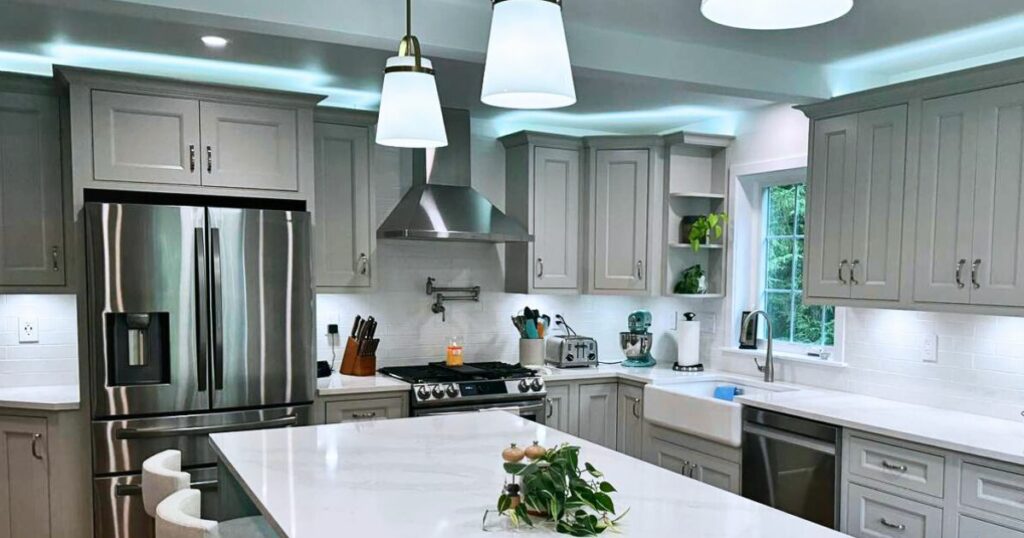
When you’re buying a new construction home, a home inspection might seem like an extra step. But, it’s a step that can bring a lot of value. Here’s why:
Early Detection
Finding problems early can save you a lot of trouble. Imagine moving into your new home, only to find out there’s a leaky roof or faulty wiring. An inspection can catch these issues before you move in, making it easier and often cheaper to fix them.
Peace of Mind
Knowing that a professional has checked out your home and given it the green light can give you peace of mind. It’s comforting to know that your new home is safe, secure, and built to last.
Negotiating Repairs
If the inspection finds problems, you can negotiate with the builder to fix them before you close the deal. This means you won’t have to deal with the hassle and expense of repairs after you’ve moved in.
Documentation
A home inspection provides detailed documentation of your home’s condition. This can be invaluable if issues arise later on. It’s proof that the problem was there from the start, which can help with warranty claims or negotiations with the builder.
Understanding Investment
Finally, a home inspection helps you understand exactly what you’re buying. It’s a detailed report on the condition of one of the biggest investments you’ll ever make. This knowledge is powerful. It can help you make informed decisions and ensure you’re getting what you’re paying for.
In short, a home inspection for new construction isn’t just about finding faults. It’s about ensuring quality, securing your investment, and giving you confidence in your new home. Remember these benefits. They highlight why taking this step is not just beneficial but essential for any new home buyer.
Next, we’ll dive into the common issues identified during new construction inspections, shedding light on what inspectors are looking out for and why these findings matter.
Common Issues Identified During New Construction Inspections
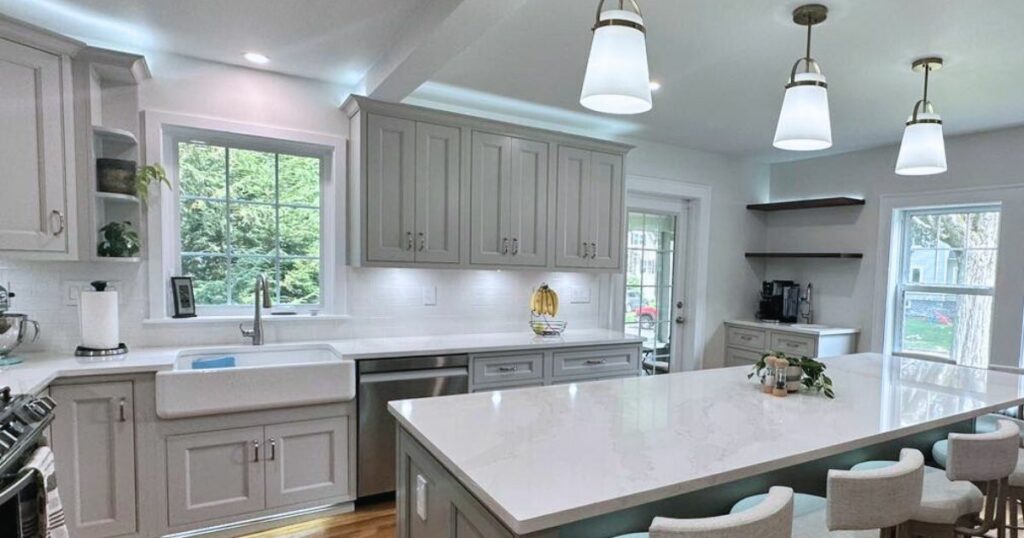
When you’re buying a new home, you expect everything to be perfect. But sometimes, things slip through the cracks—literally. Let’s talk about what inspectors often find during new construction inspections.
Poor Workmanship
It’s a hard truth, but not all builders are created equal. Some rush jobs or cut corners. Inspectors commonly find issues like uneven flooring, poor painting, or improperly installed windows and doors. These might seem small, but they can lead to bigger problems or decrease your home’s value.
Compliance
Your new home needs to follow local building codes and regulations. These rules are there for a reason—to keep you safe. Sometimes, builders miss the mark. Inspectors might find electrical systems that don’t meet code, or improper ventilation that could lead to moisture problems. It’s crucial to catch these issues early.
Appliance Installation
You’d be surprised how often new appliances are installed incorrectly. This can range from dishwashers that leak to HVAC systems that don’t heat or cool efficiently. An inspector will check to make sure all appliances are installed and working as they should be.
Safety Concerns
Safety should never be compromised. Common safety issues include missing smoke detectors, unsafe electrical wiring, and improper stair railings. These are not just code violations; they’re real dangers that could put you and your family at risk.
Warranty Concerns
Many new homes come with warranties that cover defects. But here’s the thing—if you don’t know about a problem, you can’t get it fixed under warranty. Inspectors often find issues that homeowners might not notice until after the warranty has expired, like foundation cracks or roof problems.
In short, a new construction home inspection is your safety net. It’s there to catch the issues that can affect your home’s value, your safety, and your peace of mind. Next up, we’ll discuss how to choose the right home inspector for your new construction. This step is crucial because, as we’ve seen, there’s a lot on the line.
How to Choose a Home Inspector for New Construction
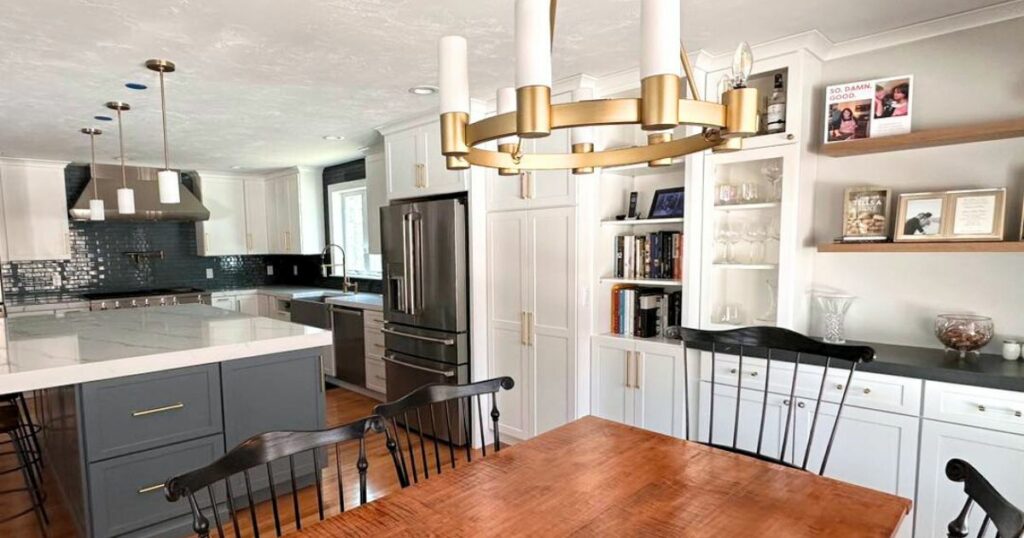
Choosing the right home inspector for your new construction is like picking the right tool for a job. You wouldn’t use a hammer to screw in a bolt, right? Let’s break down what to look for in a home inspector so you can make the best choice.
Credentials
First things first, check their credentials. A good home inspector should have a license (where required) and certifications that show they know their stuff. These aren’t just pieces of paper. They tell you that the inspector has met certain standards and keeps up with the latest in building practices and inspection techniques.
Experience
Next, look at their experience. How long have they been inspecting homes? New construction is a bit different from inspecting older homes, so you want someone who knows the ins and outs of how modern homes are built. If they’ve been around the block a few times, they’re more likely to spot those sneaky issues that could cause trouble down the line.
Specialization
Now, let’s talk about specialization. Some inspectors focus more on older homes, while others have a keen eye for new constructions. You want the latter. Ask potential inspectors about their experience specifically with new constructions. Have they dealt with the type of home you’re building? The more specialized their knowledge, the better they can serve you.
Client Reviews
Lastly, don’t forget to check client reviews. What have other homebuyers said about their services? Look for comments about their thoroughness, professionalism, and whether they helped buyers address any issues with their builders. Positive feedback from previous clients can give you peace of mind that you’re making the right choice.
When choosing a home inspector for your new construction, this person is your ally. They’re there to ensure that your dream home is as perfect as it seems. Take your time, do your homework, and choose someone who will help protect your investment. With the right inspector by your side, you can move into your new home with confidence, knowing it’s safe, sound, and built to last. Now, armed with this knowledge, you’re ready to move forward confidently into the next step of your home-buying journey.
Conclusion
Importance of Timing: When it comes to new construction, timing is everything. Scheduling your home inspection at the right moment can make all the difference. The goal is to catch any potential issues before they become your problems.
That’s why we emphasize scheduling inspections at key milestones: pre-drywall, post-construction, and before your final walkthrough. This strategic timing allows for early detection of issues, giving you the leverage to negotiate repairs and ensure your new home meets your standards.
At the end of the day, the peace of mind you gain from knowing your new construction home has been thoroughly inspected is invaluable. Whether it’s poor workmanship, compliance issues, or safety concerns, identifying these problems early can save you time, money, and stress in the long run. Plus, having a detailed inspection report can be a powerful tool in your hands, offering you documentation of your home’s condition and a clearer understanding of your investment.
Bonsai Builders
We at Bonsai Builders understand the significance of a well-timed home inspection. Our expertise in new construction makes us uniquely qualified to guide you through this process. We’re here to ensure that your dream home doesn’t come with any hidden surprises. By choosing Bonsai Builders, you’re not just investing in a property; you’re securing peace of mind for your future.
In conclusion, never underestimate the importance of timing when scheduling home inspections for new construction. These inspections are more than a formality; they are a critical component of ensuring your new home is safe, secure, and built to last.
Contact us today and trust us at Bonsai Builders to help you navigate this process, ensuring that your new home is everything you’ve ever wanted and more. Let’s make your dream home a reality, together.
Frequently Asked Questions about Home Inspections for New Construction
What is the cost of a home inspection for a new home?
The cost of a home inspection for a new home usually ranges between $300 and $500. This might feel like a lot, especially after all the expenses of buying a home. But think of it this way: it’s a small price for a big peace of mind. The exact cost can depend on the size of your home and where you live. It’s like paying a bit more for a good mechanic to make sure your car is in top shape. You wouldn’t want to skip it and end up with surprises later on.
Can I skip a home inspection if my builder offers a warranty?
Even if your builder offers a warranty, it’s not a good idea to skip the home inspection. Here’s why: A warranty may cover certain issues, but it might not catch everything a thorough inspection would. Think of it like a safety net that has some holes in it. Yes, it’s there, but wouldn’t you feel safer with a solid floor underneath? An inspection can catch problems early, before they become bigger headaches. Plus, it gives you a chance to fix things while they’re small issues, not big disasters.
How long does a new construction home inspection take?
On average, a new construction home inspection takes about 2 to 3 hours. This can vary based on the size of the home and how detailed the inspection is. Think of it as a detailed check-up for your home. Just like a doctor’s visit, you want the inspector to take their time, not rush through it. A thorough inspection means they’re checking everything carefully, which is exactly what you want for peace of mind in your new home.
These inspections are a crucial step in the home-buying process. They’re not just another item on your to-do list. By investing a little time and money now, you’re protecting your investment and ensuring your new home is safe, sound, and exactly what you dreamed it would be.
Our Content
Our experienced contractors and design specialists carefully review and edit all content to ensure it meets our high standards for quality and accuracy. We do this to provide our readers with content that is accurate, complete, reliable, and up-to-date. Bonsai Builders, located in Sutton, Massachusetts is a trusted neighborhood building source across Massachusetts for kitchen remodeling, construction process of brand new houses, and more with over 26 years of experience and over 125 jobs completed.
Bonsai Builders has renovated many split-level home kitchens across Massachusetts. Bonsai Builders is selected as best of Houzz year after year further showing their expertise and trust among homeowners in Massachusetts.
